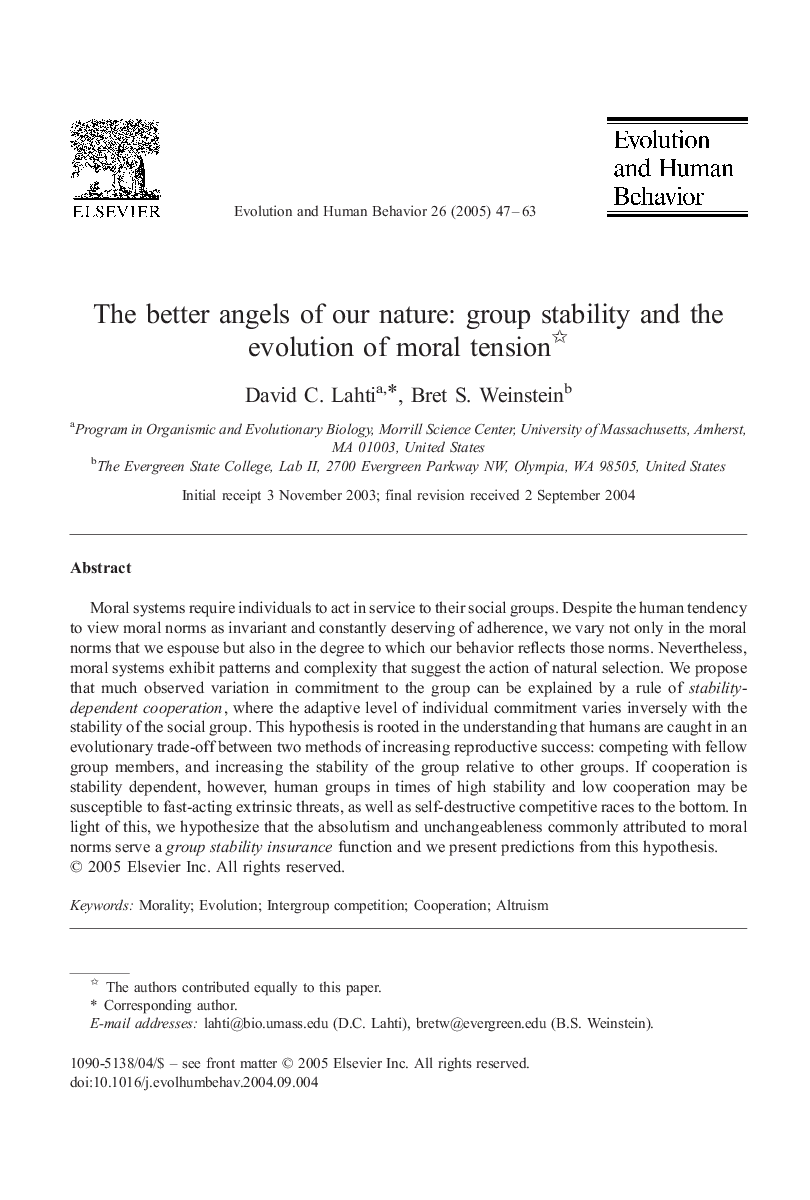| Article ID | Journal | Published Year | Pages | File Type |
|---|---|---|---|---|
| 10464116 | Evolution and Human Behavior | 2005 | 17 Pages |
Abstract
Moral systems require individuals to act in service to their social groups. Despite the human tendency to view moral norms as invariant and constantly deserving of adherence, we vary not only in the moral norms that we espouse but also in the degree to which our behavior reflects those norms. Nevertheless, moral systems exhibit patterns and complexity that suggest the action of natural selection. We propose that much observed variation in commitment to the group can be explained by a rule of stability-dependent cooperation, where the adaptive level of individual commitment varies inversely with the stability of the social group. This hypothesis is rooted in the understanding that humans are caught in an evolutionary trade-off between two methods of increasing reproductive success: competing with fellow group members, and increasing the stability of the group relative to other groups. If cooperation is stability dependent, however, human groups in times of high stability and low cooperation may be susceptible to fast-acting extrinsic threats, as well as self-destructive competitive races to the bottom. In light of this, we hypothesize that the absolutism and unchangeableness commonly attributed to moral norms serve a group stability insurance function and we present predictions from this hypothesis.
Related Topics
Life Sciences
Agricultural and Biological Sciences
Ecology, Evolution, Behavior and Systematics
Authors
David C. Lahti, Bret S. Weinstein,
